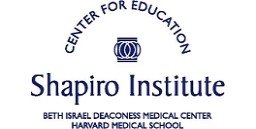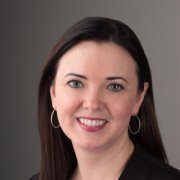Principles of Medical Education:
Maximizing Your Teaching Skills
- Continuing Education

Improve the effectiveness of your teaching and mentoring with best practices, new principles of adult learning, and the latest educational technology. This comprehensive exploration of medical education will help you inspire students, residents, fellows, and colleagues at the bedside, in ambulatory settings, and in the classroom.
- Live Online
This program uses state-of-the-art streaming technology to present sessions online in real time. Participants can attend from any location, and can interact with faculty via live chat.
Additionally, all sessions and add-on tracks will be recorded and made available to participants for on-demand online viewing for 90 days after the end of the course.
All live streaming and recorded sessions and add-on tracks are eligible for AMA PRA Category 1 Credits™ and other relevant credits, up to the approved maximum. (Note: Evaluations must be completed within 30 days in order to receive CME credit.)
$1,595 Save with early registration
Save $200. Please note that enrollment is limited to ensure the quality of the education. To ensure your participation at the lowest possible cost, early registration is strongly recommended.
Fee increases to $1,795 after
Continuing Education
Earn up to:
» 28.00 AMA PRA Category 1 Credits™
» 28.00 ANCC contact hours
» 28.00 Live AAFP Prescribed credits
» 28.00 ECME Credits®
» Commensurate credits through the Royal College of Physicians and Surgeons of Canada
2.5 Days + Optional 1.5 Days of Workshops
This interactive, hands-on course, ranked among the highest-rated Harvard Medical School CME courses, presents the most evidence-based, effective approaches to teaching medical students, residents, fellows, and colleagues.
You can extend your learning experience by registering for up to two of the three "Mastering the Skills of the Modern Medical Educator" optional add-on tracks.
On This Page
Overview
The Techniques and Strategies That Significantly Improve Student Engagement, and Teaching and Mentoring Effectiveness
Incorporating best practices, newer principles of adult learning, and widely available technologies into your teaching can significantly improve your ability to engage and inspire students, residents, fellows, and colleagues. This special program, ranked among Harvard Medical School’s highest-rated CME courses, is a uniquely comprehensive exploration of best practices for teaching medicine at the bedside, in ambulatory settings, and in the classroom.
The 2026 curriculum helps medical educators to:
- Leverage artificial intelligence in your teaching
- Provide more effective feedback that motivates change
- Utilize active learning strategies in small and large group teaching settings
- Deliver more impactful and engaging lectures
- Characterize best practices for mentor-mentee relationships and identify ways to leverage mentorship opportunities to help you thrive at work
- Optimize evaluation of trainee competencies
- Improve engagement and interactivity for in-person and virtual teaching sessions
- Enhance critical thinking and self-directed learning among students
- Describe real-time strategies to address unprofessional behavior
- Identify strengths and weaknesses of various assessment tools
- Incorporate various forms of technology, including digital media and artificial intelligence, into your teaching
- Create an action plan for implementing and sustaining effective change as leaders in medical education
- Identify strategies to recognize and mitigate bias
- Describe personal and organizational strategies to improve the well-being of yourself and your trainees
Case-based and hands-on learning are a hallmark of this course, with significant participant interaction and active modeling of instruction techniques. Whether you are newer to teaching or a seasoned educator and mentor, this course will give you modern tools and practices to optimize skills transfer and learner success.
SKILLS DEVELOPMENT
Areas of focus in which attendees will deepen their skills include:
- Interactive Lecturing
- Bedside Teaching
- Effective Mentoring
- Impactful Feedback
- Developing Curricula
- Assessing Learners
- Learner Engagement
- Teaching Critical Thinking
- Teaching and Maintaining Wellness
In addition to being live streamed, all course sessions and add-on tracks will be recorded and placed in the online course video library, so that participants can view the programs for which they registered at their convenience. The video library will be available for 90 days after the conclusion of the course. All live streaming and recorded sessions and tracks are eligible for AMA PRA Category 1 Credits™ and other relevant credits, up to the approved maximum. (Note: Evaluations must be completed within 30 days in order to receive CME credit.)
Developed and Offered By:
Continuing Education courses are developed by faculty from Harvard Medical School's teaching hospitals and accredited by Harvard Medical School. This course is offered by the Carl J. Shapiro Institute for Education and Research at Beth Israel Deaconess Medical Center.
Schedule
This program is among the highest-rated Harvard Medical School CME courses, and space is limited to ensure the quality of the education.
Participants of Principles of Medical Education can customize their learning experience by choosing up to two of three "Mastering the Skills of the Modern Medical Educator" optional add-on tracks. Please note that space is limited for these tracks, and is available on a first-come, first-served basis. Early registration is advised. Full track descriptions
All schedule times are Eastern Daylight Time.
Please note that program changes/substitutions may be made without notice.
Tuesday, March 24, 2026
Effective Teaching: Setting the Stage
8:00-8:30 am
Teaching in the 21st Century: Leveraging the Science of Learning
8:30-9:20 am
Break
9:20-9:30 am
Clinical Bedside Teaching: Effective Techniques and Overcoming Barriers
9:30-10:30 am
Break
10:30-10:45 am
Teaching Professionalism in 2026: Strategies for the Front Line
10:45-11:45 am
Morning Wrap-up with Course Directors
11:45 am-12:00 pm
Break
12:00-1:00 pm
Defining, Teaching, and Assessing Critical Thinking and Clinical Reasoning
1:00-2:00 pm
Break
2:00-2:15 pm
Skills and Strategies to Improve Small Group Teaching
2:15-3:30 pm
Break
3:30-3:40 pm
Strategies to Reduce Implicit Bias
3:40-5:00 pm
Wednesday, March 25, 2026
Teaching in the Brave New World: Medical Education in the Age of AI and other Emerging Technologies
8:00-9:15 am
Break
9:15-9:30 am
Designing and Delivering More Effective Lectures: Techniques for Better Learner Engagement
9:30-10:15 am
Break
10:15-10:30 am
Mentoring for the Future: Mentoring to Combat Burnout and Attrition
10:30-11:30 am
Break
11:30-11:45 am
Interprofessional Teaching in 2026
11:45 am-12:30 pm
Break
12:30-1:30 pm
Assessment of Learning: Determining Competence
1:30-2:30 pm
Break
2:30-2:45 pm
Meeting Learners Where They Practice: Bringing Simulation to the Clinical Environment
2:45-3:30 pm
Break
3:30-3:45 pm
Coaching for Success: Supporting Trainee Well-Being and Your Own
3:45-4:45 pm
Thursday, March 26, 2026
Curriculum Design: Best Practices for Creation, Implementation, and Evaluation
8:00-9:15 am
Break
9:15-9:30 am
Feedback: Making It Powerful, Effective, and Efficient
9:30-10:30 am
Break
10:30-10:45 am
Leading Effective Change in Medical Education
10:45-11:45 am
Taking It All Home: Embedding New Skills in Daily Practice
11:45 am-12:00 pm
End of Principles of Medical Education Course
12:00 pm
Mastering the Skills of the Modern Medical Educator
TRACK 1: Taking Your Teaching to the Next Level
Optional Half-Day Skills Development Program
1:00 - 5:00 pm
Taking Your Teaching to the Next Level
1:00-1:15 pm
Using Advocacy Inquiry to Improve Difficult Conversations with Learners
1:15-2:30 pm
Break
2:30-2:45 pm
Strategies to Elevate Whiteboard Mini Lectures
2:45-3:45 pm
Power Up Your PowerPoint to Improve Your Lectures
3:45-5:00 pm
Mastering the Skills of the Modern Medical Educator
TRACK 2: Developing the Healthcare Professions Educator as a Leader: Skills for Modern Academic Medicine
Optional Half-Day Skills Development Program
Full Description
1:00 - 5:00 pm
Introduction and Setting the Stage: Defining Leadership in Healthcare Education
1:00-1:20 pm
Transforming Self-Insight into Authentic Leadership
1:20-1:50 pm
Break
1:50-2:00 pm
Growing Yourself and Others with Intention: Personal and Professional Development in Academic Medicine
2:00-2:45 pm
Enhanced Efficiency and Productivity Through Better Time Management
2:45-3:25 pm
Break
3:25-3:35 pm
Leading by Example: Leadership Behaviors That Shape the Learning Environment
3:35-4:10 pm
Break
4:10-4:15 pm
Connecting with and to Your Cadre: Practical Skills to Lead Across Professions and Generations
4:15-5:00 pm
Friday, March 27, 2026
Mastering the Skills of the Modern Medical Educator
TRACK 3: AI in Medical Education: A Teacher’s Guide to Preserving Thinking in This New Era
Optional Full-Day Skills Development Program
Full description
Setting the Stage: Overview of Current Tools and How and Why to Use Them
8:00-8:45 am
Break
8:45-8:50 am
Hands-on Prompting Workshop for Health Professions Educators: Part I
8:50-10:05 am
Break
10:05-10:15 am
AI Innovations in Assessment, Feedback, and Coaching
10:15-11:15 am
Break
11:15-11:20 am
Medical Education in the Age of AI: The Future Is Now and Where Do We Go from Here?
11:20 am-12:10 pm
Break
12:10-1:00 pm
Real-World Use Case: Reading and Writing Recommendation Letters in the Age of AI
1:00-1:20 pm
Break
1:20-1:25 pm
Utilizing AI to Enhance Clinical Reasoning
1:25-2:05 pm
Break
2:05-2:10 pm
Real-World Use Case: How I Use AI for Faculty Feedback
2:10-2:30 pm
Break
2:30-2:35 pm
Real-World Use Case: ChatGPT Fails Physiology
2:35-2:55 pm
Break
2:55-3:00 pm
Real-World Use Case AI in 2026: A Hands-on View from the Learner
3:00-3:35 pm
Break
3:35-3:40 pm
Real-World Use Case: How AI Has Changed EMS Education
3:40-4:00 pm
Break
4:00-4:05 pm
Hands-on Prompting Workshop for Health Professions Educators: Part II
4:05-5:15 pm
Mastering the Skills of the Modern Medical Educator Optional Add-On Tracks
Participants of Principles of Medical Education can customize their learning experience, choosing from the following add-on tracks. Each track will be recorded and available to track registrants for viewing, at their convenience, for 90 days following the course.
Please note that space is limited for these tracks, and is available on a first-come, first-served basis. Early registration is advised.
TRACK 1 - Taking Your Teaching to the Next Level
- Thursday Afternoon, March 26, 1:00 – 5:00 pm
TRACK 2 - Developing the Healthcare Professions Educator as a Leader: Skills for Modern Academic Medicine
- Thursday Afternoon, March 26, 1:00 – 5:00 pm
TRACK 3 - AI in Medical Education: A Teacher’s Guide to Preserving Thinking in This New Era
- Friday, March 27, 8:00 am – 5:00 pm

Optimized for Distance Learning

The March 2026 program has been optimized for distance learning. In addition to being live streamed, all course sessions and add-on tracks will be recorded and placed in the online course video library, so that participants can view the programs for which they registered at their convenience. The video library will be available for 90 days after the conclusion of the course.
This video library will ensure that participants who live in different time zones or who have scheduling conflicts do not miss out on any sessions that are important to them. In addition, participants can review sessions that they watched during live streaming to reinforce key learning points.
Enrollment is also limited to ensure the quality of this interactive program.
Participant Experience
More than 2500 clinical educators have participated in this program. These participants have changed their teaching practice after taking this course. Comments include:
“What was outstanding in this course? The education on concept mapping, effective feedback, making lectures more memorable, self-care and preventing burnout, and...the JOY that was manifested throughout—on the part of both faculty and attendees.”
Read more comments from other participants.
Learning Objectives
Upon completion of this course, participants will be able to:
- Identify principles of adult learning in order to:
- Assess their learners' needs,
- Design an educational intervention
- Establish learner-centered learning environments
- Employ venue-specific teaching skills for:
- Ambulatory teaching
- Bedside teaching
- Large-group presentations
- Small-group/case-based teaching
- Recognize effective learner assessment strategies and provide effective feedback in order to set educational expectations
- Foster critical thinking skills so learners may effectively use questions to promote clinical decision-making
- Engage in reflective practice in order to identify effective teaching techniques
Faculty
Course Directors
- Assistant Professor of Obstetrics, Gynecology, and Reproductive Biology
- Associate Dean for Curriculum
- Harvard Medical School
- Associate Director, Carl J. Shapiro Institute for Education and Research
- Beth Israel Deaconess Medical Center
- Associate Professor of Medicine, Harvard Medical School
- Director, Medical Intensive Care Unit
- Director, External Education, Carl J. Shapiro Institute for Education and Research
- Beth Israel Deaconess Medical Center
- Steven P. Simcox, Patrick A. Clifford, and James H. Higby Associate Professor of Medicine, Harvard Medical School
- Dean for External Education, Harvard Medical School
- Ellen and Melvin Gordon Distinguished Professor of Medicine and Medical Education, Harvard Medical School
- Vice President for Education
- Director, Carl J. Shapiro Institute for Education and Research, Beth Israel Deaconess Medical Center
Asha Anandaiah, MD, Assistant Professor of Medicine
K. Meredith Atkins, MD, Assistant Professor of Obstetrics, Gynecology, and Reproductive Biology
Stephanie Cabral, MD, Research Fellow in Medicine
Bernard Chang, MD, Daniel D. Federman, MD Professor of Neurology and Medical Education
Huma Farid, MD, Assistant Professor of Obstetrics, Gynecology and Reproductive Biology
Laurie Fishman, MD, Associate Professor of Pediatrics
Sarah Fleet, MD, Assistant Professor of Pediatrics
Jason Freed, MD, Assistant Professor of Medicine
Margaret Hayes, MD, Associate Professor of Medicine
Grace Huang, MD, Professor of Medicine, Dean for Faculty Affairs
Carol Hughes, Operations Director, BIDMC, Shapiro Institute
Ted James, MD, Associate Professor of Surgery
Robbin Miraglia, PhD, RN, Simulation and Skills Education Specialist
Ryan Nelson, MD, Assistant Professor of Medicine
Kerri Palamara McGrath, MD, Assistant Professor of Medicine
David H. Roberts, MD, Associate Professor of Medicine
Adam Rodman, MD, Assistant Professor of Medicine
Richard Schwartzstein, MD, Professor of Medicine
C. Christopher Smith, MD, Associate Professor of Medicine
Carrie Tibbles, MD, Assistant Professor of Emergency Medicine
Quinn Capers IV, MD, FACC, FSCAI, Professor and Section Chief of Coronary Interventions and Vice Dean for Faculty Development and Leadership, Rush Medical College
Jonathan H. Chen MD, PhD, Assistant Professor, Center for Biomedical Informatics Research and Division of Hospital Medicine, Stanford Department of Medicine, Stanford School of Medicine
Morgan Soffler, MD, Assistant Professor of Medicine, New York Medical College; Associate Program Director, Sleep Fellowship, Westchester Medical Center
Robert Storck, Clinical Coordinator, EMS Educator, Norwalk Hospital
Course Fees
Registration Details
Registrations for Harvard Medical School CME programs are made via our secure online registration system. At the end of the registration process, a $10 non-refundable processing fee will be added to your registration.
Upon receipt of your paid registration, an email confirmation will be sent to you. Be sure to include an email address that you check frequently. Your email address is used for critical information, including registration confirmation, evaluation, and certificate.
Please review the cancellation policy.
| Role | Course Fee | Early Registration Course Fee |
|---|---|---|
| Physician (MD/DO) | $1,795.00 | $1,595.00 |
| Nurse (RN/APRN) | $1,795.00 | $1,595.00 |
| PA | $1,795.00 | $1,595.00 |
| Psychologist | $1,795.00 | $1,595.00 |
| Resident/Fellow | $1,795.00 | $1,595.00 |
| Social Worker | $1,795.00 | $1,595.00 |
| Allied Health Professional / Other | $1,795.00 | $1,595.00 |
Mastering the Skills of the Modern Medical Educator Optional Add-On Tracks | |
Track 1: Taking Your Teaching to the Next Level Thursday, March 26, 1:00 – 5:00 pm (Space is limited) | $395 |
Track 2: Developing the Healthcare Professions Educator as a Leader: Skills for Modern Academic Medicine Thursday, March 26, 1:00 – 5:00 pm (Space is limited) | $395 |
Track 3: AI in Medical Education: A Teacher’s Guide to Preserving Thinking in This New Era Friday, March 27, 8:00 am – 5:00 pm (Space is limited) | $790 |
All attendees of Principles of Medical Education will receive comprehensive electronic reference materials.
All course sessions and add-on tracks will be recorded as they are live streamed and placed in the online course video library, so that registrants can view the programs for which they registered at their convenience. The video library will be available for 90 days after the conclusion of the course.






